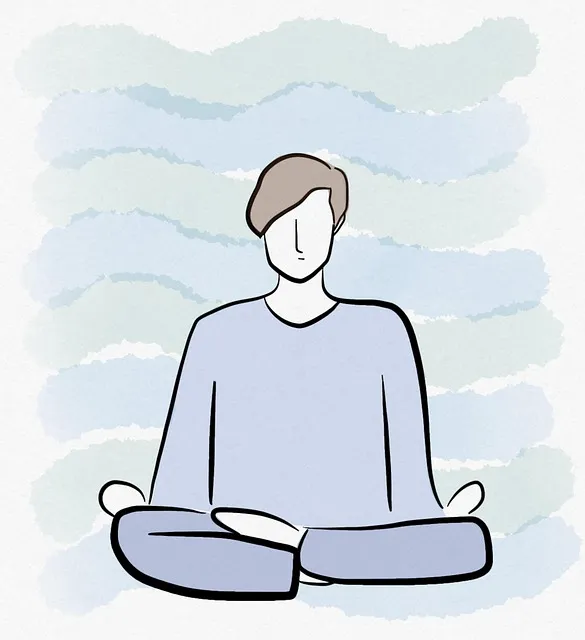Westminster Kaiser Permanente mental health providers offer a holistic approach to managing anxiety, combining evidence-based practices like CBT, mindfulness and meditation with physical activity and nutrition. They provide tailored guidance, coping skills development, and support through individual therapy, group sessions, and community education to address symptoms and root causes of anxiety for lasting mental well-being.
Anxiety is a prevalent condition affecting millions, but managing it effectively needn’t be overwhelming. This guide explores powerful techniques to take control of your mental well-being. We delve into understanding anxiety’s triggers and symptoms, offering insights for recognition and early intervention. Discover the transformative potential of Cognitive Behavioral Therapy (CBT), mindfulness practices, and the impact of physical activity and nutrition. Additionally, we highlight the invaluable resources available through Westminster Kaiser Permanente mental health providers, offering a comprehensive approach to conquering anxiety.
- Understanding Anxiety: Recognizing Common Triggers and Symptoms
- Cognitive Behavioral Therapy (CBT): A Powerful Tool for Overcoming Anxiety
- Mindfulness and Meditation: Finding Calm in a Busy World
- Physical Activity and Nutrition: The Role of Movement and Diet in Managing Anxiety
- Supportive Resources: Leveraging Westminster Kaiser Permanente Mental Health Providers
Understanding Anxiety: Recognizing Common Triggers and Symptoms

Anxiety is a natural response to stress or perceived threats, but when it becomes overwhelming and persistent, it can significantly impact daily life. Understanding what triggers anxiety attacks and recognizing common symptoms are crucial steps in managing this condition. Many individuals struggle with anxiety at some point in their lives, and seeking help from Westminster Kaiser Permanente mental health providers can be a game-changer. These professionals are equipped to offer guidance and support tailored to individual needs.
Recognizing common triggers is essential for developing effective coping strategies. Stressful life events, such as financial worries, relationship issues, or major changes at work, can ignite anxiety symptoms. Additionally, certain situations like crowded places, public speaking engagements, or even everyday responsibilities might trigger feelings of panic and unease. Symptoms of anxiety can manifest physically (e.g., rapid heartbeat, sweating, dizziness) and emotionally (e.g., fear, restlessness, difficulty concentrating). By identifying these triggers and symptoms, individuals can begin to build resilience and employ Emotional Well-being Promotion Techniques to better manage their anxiety. Coping Skills Development is another critical aspect that helps in navigating through stressful situations without letting anxiety take over.
Cognitive Behavioral Therapy (CBT): A Powerful Tool for Overcoming Anxiety

Cognitive Behavioral Therapy (CBT) is a highly effective and evidence-based approach to managing anxiety disorders, making it an invaluable tool for individuals seeking relief from their anxious symptoms. Offered by dedicated mental health providers at Westminster Kaiser Permanente, CBT focuses on identifying and changing negative thought patterns and behaviors that contribute to anxiety. By challenging distorted beliefs and learning coping strategies, patients can gain a deeper understanding of their anxiety triggers and develop inner strength to navigate stressful situations effectively.
This therapeutic method empowers individuals to manage their anxiety in the moment and prevent future episodes by replacing unhelpful thinking habits with healthier, more balanced perspectives. Through structured sessions tailored to each patient’s unique needs, CBT encourages self-awareness, emotional regulation, and problem-solving skills, ultimately fostering greater resilience against anxiety and enhancing overall well-being.
Mindfulness and Meditation: Finding Calm in a Busy World

In today’s fast-paced world, finding moments of calm can feel like navigating a labyrinthine hustle and bustle. This is where mindfulness and meditation step in as powerful tools offered by Westminster Kaiser Permanente mental health providers. These practices encourage individuals to focus on the present moment, observing their thoughts and feelings without judgment. By integrating mindfulness into daily routines, folks can foster better coping skills development and enhance their overall well-being.
A simple yet effective way to start is through self-care routine development. Allocating just a few minutes each day for meditation or mindful breathing exercises can be transformative. It allows individuals to create a mental sanctuary amidst the chaos, thereby revolutionizing their approach to stress management. With consistent practice, these techniques can help individuals respond rather than react during challenging situations, providing crisis intervention guidance and promoting indelible positive change.
Physical Activity and Nutrition: The Role of Movement and Diet in Managing Anxiety

Physical activity and nutrition play a crucial role in managing anxiety, offering a holistic approach to mental health care that many individuals overlook. Regular movement, such as walking, jogging, or participating in team sports, can significantly reduce symptoms of anxiety and improve overall well-being. This is partly due to the release of endorphins during exercise, which act as natural mood lifters. Additionally, physical activity provides an outlet for stress relief, allowing individuals to channel their anxious energy into a productive and healthy routine.
At Westminster Kaiser Permanente, mental health providers emphasize the importance of combining exercise with proper nutrition for optimal anxiety management. A balanced diet that includes whole grains, lean proteins, and plenty of fruits and vegetables supports brain function and emotional stability. By incorporating self-esteem improvement techniques, communication strategies, and even mental wellness coaching programs development, individuals can create a comprehensive plan to combat anxiety effectively. These holistic approaches not only address the symptoms but also target the root causes, fostering lasting mental health and well-being.
Supportive Resources: Leveraging Westminster Kaiser Permanente Mental Health Providers

At Westminster Kaiser Permanente, mental health providers play a pivotal role in supporting individuals navigate and overcome anxiety. These professionals are equipped with evidence-based practices and compassionate approaches to help patients understand and manage their symptoms. From individual therapy sessions to group support groups, the range of services offered ensures personalized care tailored to unique needs.
Effective communication strategies form the backbone of successful treatment. Westminster Kaiser Permanente’s mental health providers foster open dialogue, creating safe spaces for individuals to express their experiences and concerns. This collaborative process facilitates emotional healing processes, empowering patients to develop coping mechanisms and enhance overall well-being. Public awareness campaigns development around anxiety can further complement these efforts by promoting understanding and reducing stigma within the community.
Anxiety management is a holistic journey, and with the right tools, it’s possible to lead a calmer, more fulfilling life. By understanding the root causes of anxiety through recognizing triggers and symptoms, one can effectively utilize evidence-based methods like Cognitive Behavioral Therapy (CBT) and mindfulness practices. Physical well-being also plays a crucial role, making regular exercise and mindful nutrition essential components in managing anxiety. For those in the Westminster area, leveraging the expertise of Westminster Kaiser Permanente mental health providers offers comprehensive support tailored to individual needs. Remember that managing anxiety is a personal process, and combining various techniques can lead to significant improvements in overall mental well-being.






